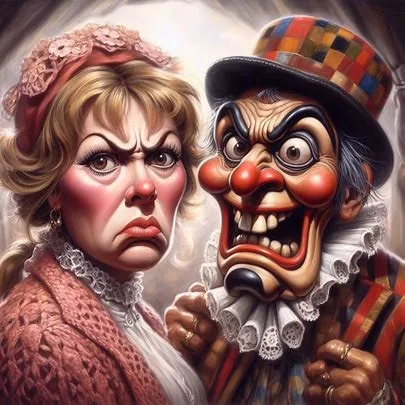Hypocrisy In Cheating
——————————
Can Cheats Call Out Other Cheats When The Team Calling It Out Is Not Clean?
The Responsibility Of Hypocrisy In Cheating is an interesting one on can cheats call other cheats out or have the cheats lost the voice of reason?
In the world of sports, the line between fair play and cheating can sometimes blur. It’s a contentious issue that has sparked debates and controversies. But what happens when a team that has had its share of cheating scandals calls out another team for the same? Is it hypocrisy, or is it a call for a cleaner, more honest sporting world?
The Reality of Cheating in Sports
Cheating in sports is not a new phenomenon & hypocrisy in cheating is not either but what is right. From doping scandals to match-fixing, the history of sports is littered with instances of teams and individuals bending or breaking the rules to gain an unfair advantage.
Some teams have even continued to field players who have been found guilty of cheating, further muddying the waters.
Hypocrisy In Cheating Of Calling Out Others
When a team that has had its own cheating scandals calls out another team for cheating, it can come across as hypocritical. After all, how can one condemn an action that they themselves are guilty of? This is especially true if the team still has players who have been involved in cheating scandals.
The Call for Fair Play
However, one could argue that calling out cheating, regardless of one’s own past, is a step towards promoting fair play. It’s a way of acknowledging past mistakes and making a stand against dishonest practices. It sends a message that cheating is unacceptable, no matter who does it.
The Need For Accountability
While calling out others for cheating can be seen as a move towards cleaner sports, it should not absolve teams of their own past or present wrongdoings. Teams need to hold themselves accountable for their actions. This includes taking appropriate action against players who cheat and making efforts to prevent such incidents in the future.
The act of intentionally drawing out time in sports by faking injuries or deliberately slowing the start of play is often referred to as “time-wasting”.
Whether it’s considered cheating or strategy can depend on several factors
Rules of the Game- In some sports, time-wasting is explicitly against the rules and can result in penalties. In these cases, it would be considered cheating.
Intent – If a player or team intentionally uses these tactics with the aim of gaining an unfair advantage, it could be viewed as cheating.
Cultural Acceptance – In some sports cultures, certain degrees of time-wasting are accepted as part of the game’s strategy. However, this can vary widely and what is considered acceptable in one culture or sport may be viewed as cheating in another.
It’s important to note that while these tactics might sometimes be seen as a strategy, they are generally frowned upon as they go against the spirit of fair play.
Sportsmanship should always be a priority in any sport. It’s always best to play fair and respect the rules of the game so you do not cheat and or have the stigma of hypocrisy in cheating.

The Responsibility Of Cheating & Hypocrisy In Cheating
———————————————-
Player or Management Responsibility?
When it comes to cheating in sports, the blame often falls on the player involved. But what happens when a coach or management encourages or even instructs a player to cheat? Who should bear the responsibility then?
The Role of Coaches and Management
Coaches and management play a crucial role in shaping a team’s culture and values. They are responsible for setting the standards of behavior and ensuring that players adhere to the rules of the game. If they encourage or instruct players to cheat, they are not only breaking the rules but also failing in their duty as role models.
The Responsibility of the Player
While coaches and management hold significant influence, players also have a personal responsibility to uphold the integrity of the game. Even if they are under pressure from their superiors, choosing to cheat is ultimately their decision. They have the option to say no and to report any unethical practices.
Shared Accountability
In situations where a player cheats under the instruction of a coach or management, responsibility should be shared. Both parties have failed to uphold the principles of fair play and sportsmanship. Penalties should reflect this shared accountability, with sanctions applied to both the player and the management involved.

The Need for Ethical Leadership
This highlights the importance of ethical leadership in sports. Coaches and management need to lead by example, promoting a culture of fair play and respect for the rules. Players, on the other hand, should be empowered to stand up against cheating, even when it comes from their own team.
Conclusion
In conclusion, while it may seem hypocritical for a team with a history of cheating to call out another team for the same, it can also be viewed as a call for change. However, true change can only come when teams not only call out cheating but also take responsibility for their own actions. After all, in the world of sports, fair play should always be the ultimate goal.
Join the Discussion
We’ve had a look into some complex issues surrounding cheating in sports, from time-wasting tactics to the responsibility of players and management in cheating scandals. But this conversation shouldn’t end here. We want to hear from you.
What are your thoughts on teams that have had their own cheating scandals calling out others for the same? Is it hypocrisy or a call for change?
How do you view time-wasting tactics in sports? Is it a strategy or a form of cheating?
Who do you think should bear the responsibility when a player cheats under the instruction of a coach or management? Should it be the player, the coach, the management, or all of them?
Share your thoughts and join the discussion. Let’s promote a culture of fair play and sportsmanship together.
#SportsEthics #FairPlay #NoToCheating #TimeWasting #Sportsmanship #CleanSports #Accountability #PlayerResponsibility #CoachResponsibility #ManagementResponsibility #EthicalLeadership #StandAgainstCheating #RespectTheGame #IntegrityInSports #JoinTheDiscussion #SpeakUp #RoleModelsInSports #LeadByExample #SayNoToUnfairAdvantage #PromoteFairPlay #EndSportsCheating #CulturalAcceptance #StrategyOrCheating #BlurredLines #SportsDebate #SportsControversies #TeamCulture #ValuesInSports #StandForChange #SportsAndHypocrisy

